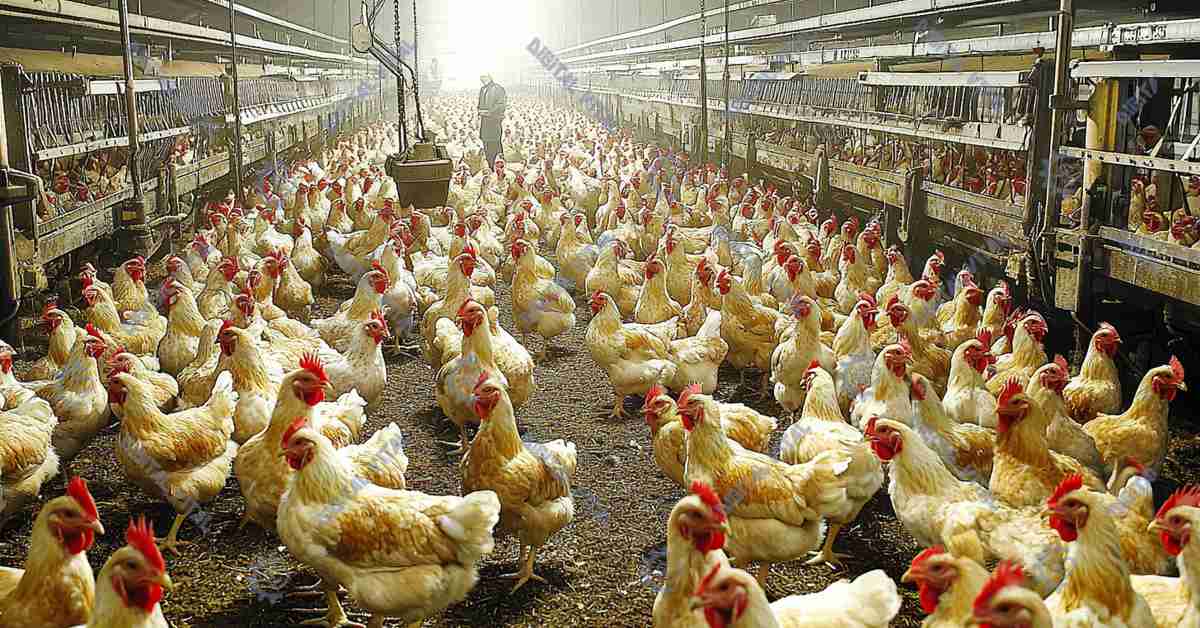Organic farming and sustainable agriculture are intertwined fields that promise not only to feed the world’s population but also to protect the planet. They represent solutions to many of the pressing challenges humanity faces today, from climate change to chronic diseases. But what exactly do these terms mean, and why are they critical to our future?
Organic farming, sustainable agriculture, environmental benefits, human health, toxic industrial farming, food industrialization, chronic diseases, ecological challenges
Table of Contents
Introduction to Organic Farming
Organic farming refers to agricultural practices that rely on natural inputs and processes to cultivate crops and livestock. Instead of synthetic fertilizers, pesticides, and genetically modified organisms (GMOs), organic farming uses techniques like crop rotation, composting, and biological pest control to maintain soil fertility and control pests. These practices are not only eco-friendly but also aim to promote biodiversity and enhance ecological balance.
At its core, organic farming prioritizes the health of the soil, plants, animals, and humans. The key principle is to work with nature, rather than against it, creating a harmonious relationship between agriculture and the environment.
How Organic Farming Promotes Sustainability
One of the primary goals of organic farming is to contribute to sustainable agriculture, a system that ensures long-term productivity while being environmentally sound and socially responsible. Unlike conventional farming, which often prioritizes short-term yields over ecological balance, organic farming fosters sustainability by preserving resources, promoting biodiversity, and reducing the environmental impact of food production. In this context, organic farming and sustainable agriculture are closely related, with organic methods leading the charge toward a healthier planet and future generations of farmers.
Reducing Soil Degradation
Soil health is fundamental to sustainable agriculture, and organic farming is especially effective at preventing soil degradation. Conventional farming practices, which often involve monoculture and heavy reliance on chemical fertilizers, can lead to severe soil erosion and the depletion of essential nutrients. In contrast, organic farming employs techniques such as crop rotation, cover cropping, and organic composting, all of which help restore and maintain soil fertility.
A 2019 study published in Agronomy for Sustainable Development showed that organic farming improves soil structure and enhances its organic matter content, resulting in better water retention and resistance to drought. For example, crop rotation breaks pest cycles and prevents the depletion of specific soil nutrients, while cover cropping helps protect the soil from erosion and adds nitrogen naturally, which is vital for plant growth. Furthermore, the use of organic compost instead of synthetic fertilizers promotes the growth of healthy soil microorganisms that support plant health.
Organic farming’s emphasis on soil conservation not only helps prevent land degradation but also contributes to the resilience of agricultural systems in the face of climate change. Healthier soils are better equipped to cope with extreme weather events, ensuring more stable food production in the long run.
Biodiversity Enhancement
Another critical aspect of organic farming is its emphasis on biodiversity, which is essential for sustainable agriculture. Unlike industrial farming systems that often rely on monocultures—planting the same crop over large areas—organic farms tend to cultivate a diverse array of crops and support more varied ecosystems. This biodiversity is crucial for creating resilient agricultural systems that can better withstand pests, diseases, and changing environmental conditions.
Organic farming not only encourages the planting of multiple crop species but also fosters greater diversity among soil organisms, insects, and wildlife. A 2018 study published in Nature Sustainability found that organic farms have up to 50% more plant, insect, and animal species than conventional farms. This increased biodiversity strengthens ecosystems, reduces the need for chemical inputs like pesticides, and contributes to pollinator health—a crucial component of food production.
For instance, organic farms often provide habitats for bees and other pollinators, which are vital for crops like fruits, vegetables, and nuts. Pollinator populations are currently declining due to pesticide use and habitat loss, but organic farming practices offer a way to support their survival and, by extension, food security.
Lowering Carbon Footprint
One of the most significant environmental advantages of organic farming is its ability to reduce the overall carbon footprint of agriculture. Conventional farming practices, especially those that involve the use of synthetic fertilizers, are heavily reliant on fossil fuels, both for the production of fertilizers and for the machinery used in farming. These practices contribute significantly to greenhouse gas emissions, accelerating climate change.
Organic farming, by contrast, avoids synthetic fertilizers and prioritizes natural processes that not only reduce emissions but also actively sequester carbon in the soil. Techniques like no-till farming, composting, and agroforestry help store carbon in the soil, mitigating climate change. According to a 2014 report by the Rodale Institute, organic farming practices can sequester up to 1,000 pounds of carbon per acre per year, which is equivalent to removing 200 cars off the road annually.
Moreover, organic farming’s use of green manure, crop residues, and composting contributes to the enrichment of soil organic carbon, which in turn improves soil fertility and productivity. By increasing the carbon content in soils, organic farming plays a crucial role in combating global warming while simultaneously enhancing the long-term sustainability of agricultural systems.
Water Conservation and Quality Protection
Sustainable water use is another hallmark of organic farming, which employs methods that protect water resources from contamination and depletion. In conventional farming, the overuse of synthetic fertilizers and pesticides often leads to runoff that contaminates rivers, lakes, and groundwater supplies. This pollution can create dead zones in aquatic ecosystems and pose risks to human health.
Organic farming practices help mitigate these risks by minimizing or eliminating chemical inputs and using natural methods to maintain soil fertility and control pests. A 2017 study in Environmental Science & Technology showed that organic farms have significantly lower levels of nitrate leaching compared to conventional farms, reducing the risk of water pollution. In addition, organic farms typically use drip irrigation and other water-efficient techniques that reduce overall water use and prevent water waste.
In drought-prone areas, the ability of organic farms to retain more moisture in the soil is particularly valuable. This is due to the higher organic matter content in organically managed soils, which improves water infiltration and storage. As climate change exacerbates water scarcity in many regions, organic farming’s water conservation practices will be vital to sustaining agricultural productivity.
Ensuring Future Viability
The sustainability of organic farming goes beyond environmental concerns—it also ensures that farming remains economically and socially viable for future generations. Organic farming fosters local economies by encouraging the growth of smaller, more diverse farms that are less reliant on global commodity markets. This, in turn, supports rural development and creates jobs within communities.
Moreover, organic farming often involves direct-to-consumer sales, such as farmers’ markets and community-supported agriculture (CSA) programs, which create stronger connections between consumers and producers. These markets provide farmers with fairer prices for their products, ensuring that farming remains a viable livelihood even in the face of fluctuating market conditions.
According to a report by the Food and Agriculture Organization of the United Nations (FAO), sustainable agriculture, including organic farming, can help alleviate poverty in rural areas by creating sustainable income streams and reducing the need for costly chemical inputs.
Organic farming is an essential component of sustainable agriculture, providing a pathway to reduce environmental degradation, enhance biodiversity, lower the carbon footprint, and ensure long-term agricultural productivity. Through practices like crop rotation, composting, and biodiversity enhancement, organic farming fosters resilience in ecosystems and farming systems alike. As we face the twin challenges of climate change and global food security, organic farming offers a sustainable solution that benefits both people and the planet.
Learn more about how organic farming practices can help combat climate change at the Rodale Institute’s Climate Change and Agriculture.

The Impact of Organic Farming on Human Health
Organic farming does not just benefit the environment; it also significantly enhances human health. Over the years, numerous studies have underscored the advantages of consuming organic products, particularly when it comes to nutrition and safety. Organic farming practices ensure that crops and livestock are produced without harmful chemicals, synthetic additives, or genetic modifications, leading to food that is both healthier and safer to consume. In fact, organic farming may play a key role in addressing some of the most pressing public health challenges of our time, including the rise of chronic diseases and antibiotic resistance.
Reduction in Pesticide Exposure
One of the most substantial health benefits of organic farming is the reduction in pesticide exposure. Conventional farming practices rely heavily on synthetic pesticides and herbicides to control pests and weeds, but these chemicals don’t just remain on the farm—they end up on the food we eat and can accumulate in our bodies over time. According to a 2015 study published in Environmental Health Perspectives, individuals who consume organic produce have significantly lower levels of pesticide metabolites in their urine compared to those who consume conventionally grown foods.
The dangers associated with pesticide exposure are well documented. Research has linked prolonged exposure to synthetic pesticides with an increased risk of numerous health issues, including neurological disorders, cancer, hormonal disruptions, and reproductive problems. For instance, a study published by the International Journal of Environmental Research and Public Health reported that exposure to organophosphate pesticides is associated with impaired cognitive function, particularly in children. Additionally, the World Health Organization (WHO) has classified glyphosate, a common herbicide used in industrial farming, as “probably carcinogenic to humans”. Organic farming, by eliminating the use of these toxic chemicals, helps reduce the risk of such harmful health effects.
Nutrient-Rich Food
Organic farming practices not only reduce exposure to harmful chemicals but also promote the production of more nutrient-dense food. Research consistently shows that organic fruits and vegetables tend to have higher levels of essential nutrients, including vitamins, minerals, and antioxidants. For example, a comprehensive study published in the British Journal of Nutrition in 2014 found that organic crops contain up to 60% more antioxidants compared to conventionally grown crops. These antioxidants are crucial in neutralizing free radicals in the body, which may lower the risk of chronic diseases such as heart disease, cancer, and diabetes.
Furthermore, organic farming practices improve soil health by using natural fertilizers, crop rotations, and composting. Healthier soil means healthier plants, which, in turn, produce nutrient-rich food. Studies have shown that soil managed with organic practices contains more beneficial microorganisms that can help plants absorb nutrients more effectively. For consumers, this translates into food that is not only free from harmful substances but also packed with essential nutrients that contribute to overall well-being.
Healthier Animal Products
The benefits of organic farming extend beyond plant-based foods. Organic farming standards also apply to livestock, ensuring that meat, dairy, and eggs are produced without the use of antibiotics, synthetic hormones, or genetically modified organisms. This has significant implications for human health, particularly in reducing the risk of antibiotic resistance and exposure to harmful chemicals.
Antibiotic Resistance
One of the critical health risks posed by industrial farming is the overuse of antibiotics in livestock. In conventional farming, antibiotics are often administered to animals in low doses to promote growth and prevent disease in crowded and unsanitary conditions. However, this practice has contributed to the rise of antibiotic-resistant bacteria, a global health crisis that threatens the effectiveness of life-saving medicines. The Centers for Disease Control and Prevention (CDC) estimates that at least 2.8 million people in the United States are infected with antibiotic-resistant bacteria each year, leading to 35,000 deaths. By contrast, organic farming prohibits the routine use of antibiotics, which helps prevent the development and spread of these resistant bacteria.
Toxin-Free Animal Products
Organic farming also ensures that livestock are raised without synthetic hormones or chemicals that could harm human health. A study published in Public Health Nutrition highlighted that organic meat and dairy contain lower levels of harmful substances like dioxins and pesticides. Furthermore, organic livestock are typically raised in more humane conditions, with access to pasture and a diet free from GMOs and animal by-products, which leads to healthier animals and, consequently, healthier food products for consumers.
Organic Farming and Public Health
The health benefits of organic farming extend beyond the farm and table, influencing broader public health outcomes. For example, organic farming practices help protect water quality by avoiding chemical runoff, which can contaminate water sources and pose health risks to communities. In conventional farming, the use of synthetic fertilizers and pesticides often leads to eutrophication, a process that depletes oxygen in water bodies, harming aquatic life and creating “dead zones.” Organic farming, on the other hand, relies on compost and natural soil amendments that reduce the risk of water pollution, thereby safeguarding human health.
Additionally, by reducing exposure to toxic chemicals and promoting healthier food options, organic farming has the potential to play a significant role in preventing chronic diseases. According to a report published by the Harvard T.H. Chan School of Public Health, dietary changes, including increased consumption of organic food, could prevent up to 30% of cardiovascular diseases worldwide.
Organic farming’s holistic approach to health—focusing on both environmental sustainability and human well-being—makes it a powerful tool in the fight against chronic diseases and environmental degradation.
Organic Farming as a Solution to Environmental Challenges
Beyond the farm, organic agriculture offers a solution to some of the most pressing environmental challenges, particularly climate change and biodiversity loss. Conventional farming practices, especially industrial-scale monocultures, rely on heavy chemical inputs and contribute significantly to environmental degradation. In contrast, organic farming employs techniques that protect and preserve natural resources.
Preservation of Water Quality
Industrial farming’s reliance on synthetic fertilizers and pesticides often leads to runoff that pollutes water bodies. These pollutants cause dead zones in oceans and freshwater ecosystems, harming aquatic life. Organic farming practices help mitigate this by avoiding chemical inputs and utilizing more sustainable nutrient management systems.
Climate Change Mitigation
Organic farming can help combat climate change by increasing the amount of carbon stored in soils. Practices like crop rotation, cover cropping, and reduced tillage help improve soil health, which in turn increases its ability to capture and store carbon. This process, known as carbon sequestration, helps reduce the overall concentration of greenhouse gases in the atmosphere.
In essence, organic farming helps build healthier ecosystems that are more resilient to environmental changes.
Industrial Farming and Its Impact on Health and the Environment
While organic farming offers numerous benefits, the rise of industrial farming has created a host of environmental and health problems. Industrial farming is characterized by large-scale monocultures, heavy chemical use, and confined animal feeding operations (CAFOs). This system has been criticized for its environmental degradation and its contribution to the rise of chronic diseases.

Toxic Pesticides and Fertilizers
Industrial agriculture relies on toxic chemicals to maximize yields. These chemicals not only contaminate soil and water but also enter the food chain, posing risks to human health. Pesticides such as glyphosate, commonly used in industrial farming, have been linked to cancer and other health problems.
The Rise of Chronic Diseases
The industrialization of food production has coincided with a rise in chronic diseases such as diabetes, obesity, and cardiovascular disease. Highly processed foods, which are often derived from industrial farming, are typically high in sugar, unhealthy fats, and additives, contributing to these health problems. Furthermore, the overuse of antibiotics in industrial livestock operations has contributed to the rise of antibiotic-resistant bacteria, posing a serious public health threat.
Food Industrialization and the Emergence of New Diseases
The industrialization of food production has had profound consequences on both public health and the environment, extending far beyond the farm. The shift toward industrial farming practices—driven by a desire for increased efficiency and profit—has resulted in the widespread use of antibiotics, the confinement of livestock in overcrowded spaces, and the reliance on highly processed foods. These changes have not only altered the way we produce and consume food but have also led to the emergence of new diseases and heightened public health risks. The stark contrast between industrial farming and organic farming highlights the importance of sustainable agriculture in addressing these modern challenges.

The Connection to Zoonotic Diseases
Industrial farming practices, particularly in large-scale livestock operations, have also been linked to the spread of zoonotic diseases—diseases that can be transmitted from animals to humans. The close confinement of animals in industrial systems creates the ideal environment for the emergence and transmission of infectious diseases. Pathogens can spread rapidly in overcrowded conditions, where animals are often stressed and have weakened immune systems due to poor living conditions.
Historically, zoonotic diseases such as avian influenza and swine flu have emerged from industrial farming systems. The COVID-19 pandemic has further highlighted the risks associated with intensive animal farming. While the exact origin of the virus is still under investigation, it has brought renewed attention to the potential for industrial farming to facilitate the transmission of zoonotic diseases.
In contrast, organic farming promotes healthier, less stressful living conditions for animals, reducing the risk of disease transmission. Organic livestock are typically raised in more spacious environments with access to pasture, which lowers stress and supports stronger immune systems. This approach reduces the likelihood of zoonotic disease outbreaks and aligns with the principles of sustainable agriculture, which seeks to protect both animal and human health.
Health Risks from Processed Foods
The industrialization of food production has also led to a dramatic increase in the availability of highly processed foods, which are often loaded with unhealthy fats, sugars, preservatives, and additives. These foods are typically produced using crops from industrial farms, where the focus is on maximizing yield and profit rather than nutritional quality. Processed foods are convenient and inexpensive, but they come at a significant cost to public health.
Numerous studies have linked the consumption of processed foods to the rise of chronic diseases, including obesity, diabetes, cardiovascular disease, and even cancer. According to a study published in The BMJ, individuals who consume a diet high in ultra-processed foods have a 62% higher risk of death from all causes, compared to those who consume a diet rich in minimally processed and whole foods. The prevalence of processed foods in modern diets has contributed to a global epidemic of diet-related illnesses, burdening healthcare systems and reducing quality of life for millions.
By contrast, organic farming supports the production of whole, minimally processed foods that are richer in nutrients and free from harmful chemicals and additives. Organic foods are grown without synthetic pesticides or fertilizers, and organic livestock are raised without the use of growth hormones or antibiotics. This leads to healthier, more nutritious food that is better for both human health and the environment. The focus on whole foods in organic systems is aligned with the principles of sustainable agriculture, which aims to promote long-term health and well-being for both people and the planet.
The Industrialization of Food and Its Global Health Impacts
The global shift toward industrialized food production has had profound and far-reaching health consequences, many of which are only now becoming fully apparent. In addition to the rise of antibiotic-resistant bacteria and zoonotic diseases, the industrial food system has contributed to a host of non-communicable diseases (NCDs) linked to poor diet. The World Health Organization (WHO) estimates that NCDs, such as heart disease, diabetes, and cancers, are responsible for 71% of all deaths globally. Many of these diseases can be traced back to diets high in processed foods and low in whole, nutrient-dense foods—a direct result of the industrialization of our food system.
Industrial farming is also a major contributor to climate change, which further exacerbates global health risks. The reliance on fossil fuels for synthetic fertilizers, the deforestation associated with large-scale monocultures, and the methane emissions from industrial livestock operations all contribute to global warming. Climate change, in turn, increases the spread of vector-borne diseases, such as malaria and dengue fever, and exacerbates food insecurity by making agricultural systems more vulnerable to extreme weather events.
In contrast, organic farming and sustainable agriculture offer a path forward that prioritizes both human health and environmental sustainability. By reducing reliance on harmful chemicals, promoting biodiversity, and supporting healthier diets, organic farming can help mitigate the global health impacts of food industrialization. Organic systems also contribute to climate resilience by promoting soil health, water conservation, and carbon sequestration.
The industrialization of food production has significantly contributed to the emergence of new diseases and the rise of chronic health conditions. From antibiotic-resistant bacteria to zoonotic diseases and diet-related illnesses, the consequences of industrial farming practices are far-reaching and alarming. In contrast, organic farming provides a sustainable and healthier alternative that reduces these risks by fostering biodiversity, promoting animal welfare, and producing nutritious, whole foods. As the global community continues to grapple with the health and environmental challenges posed by industrial food systems, the role of organic farming in building a more sustainable future cannot be overstated.
Conclusion
Organic farming and sustainable agriculture are not just buzzwords; they are critical components of a healthy future for both people and the planet. By prioritizing ecological balance, minimizing chemical inputs, and promoting biodiversity, organic farming offers a path toward more sustainable food systems. Additionally, organic farming’s benefits extend to human health, reducing exposure to toxic chemicals and promoting more nutrient-dense food. In contrast, industrial farming’s focus on maximizing production has led to environmental degradation and the rise of chronic diseases. As we move forward, embracing organic and sustainable farming practices will be crucial in addressing the global challenges of food security, climate change, and public health.
References
- Dangour, A. D., et al. (2010). “Nutritional quality of organic foods: A systematic review.” The American Journal of Clinical Nutrition, 92(1), 203-210.
- Leifert, C., et al. (2014). “Higher antioxidant and lower cadmium concentrations and lower incidence of pesticide residues in organically grown crops: a systematic literature review and meta-analyses.” British Journal of Nutrition, 112(5), 794-811.
- Altieri, M. A. (2004). “Agroecology: The Science of Sustainable Agriculture.” CRC Press.
- Horrigan, L., et al. (2002). “How sustainable agriculture can address the environmental and human health harms of industrial agriculture.” Environmental Health Perspectives, 110(5), 445-456.
- Tilman, D., et al. (2002). “Agricultural sustainability and intensive production practices.” Nature, 418(6898), 671-677.
- Pimentel, D., et al. (2005). “Environmental, energetic, and economic comparisons of organic and conventional farming systems.” BioScience, 55(7), 573-582.
- “Nutritional Quality of Organic Foods” by Dangour, A. D., et al. in The American Journal of Clinical Nutrition, discusses the comparative benefits of organic versus conventionally grown crops.
- “Agricultural Antibiotic Use and Human Health” published in The New England Journal of Medicine, which explores the impact of antibiotic use in industrial farming on antibiotic resistance.
- “Environmental Impacts of Conventional and Organic Farming” by Horrigan, L., et al. in Environmental Health Perspectives, delves into the broader implications of agricultural practices on the environment and public health.
For small businesses, employees, job seekers, and students, DigitalVital offers comprehensive services to help you navigate and thrive. Whether you need a Business strategy consultancy, publishing support, CV review, or specialized further education, we are here to assist you.
Explore other articles on our platform to stay updated on the latest trends and insights in nutrition, sustainability and related fields.

